
Our Constitutional Founders
The United States’ first constitution, the Articles of Confederation, was completely inadequate after independence. In fact, it looked as if the American experiment was doomed. A convention in 1786 at Annapolis to fix the problems couldn’t even muster a quorum.
Then in May of 1787, delegates came to Philadelphia with a congressional charter to revise the Articles. Instead of revising the Articles, they wrote a Constitution from scratch for a totally new government. For the first time in history, a group of men used reason to carry out a bloodless coup to replace an existing government.
Who were these men? Who wrote the Constitution of the United States?
The short answer is that Gouverneur Morris wrote the Constitution, with editing help from other members of the Committee of Style. In truth, all of the delegates, to a greater or lesser extent influenced the substance of the Constitution. There were fifty-five men who attended the Federal Convention, what we now call the Constitutional Convention. When Thomas Jefferson read the list of attendees, he called them an “assembly of demigods.”
Not exactly, but they were staunch revolutionaries and patriots. But they were not the firebrands of the revolution. Sam Adams, Patrick Henry, Thomas Jefferson, and Thomas Paine did not attend. The delegates that did go to the convention were highly successful, well educated, and unswerving in their support of the republican form of government. They came to Philadelphia committed to rescuing America from its slide into anarchy. They also came because of their loyalty to one man. George Washington had not been present at Annapolis, but he had been persuaded that the nation needed him in Philadelphia. No one else could get men to abandon their families, their businesses, and their states for an entire summer.
A few of the delegates remain household names. George Washington presided over the convention.
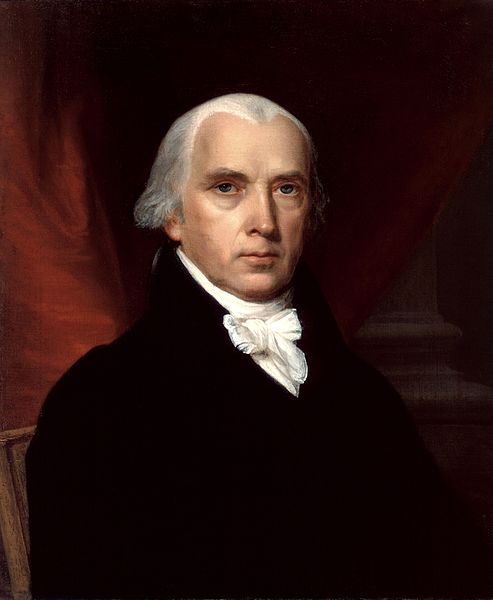 James Madison |
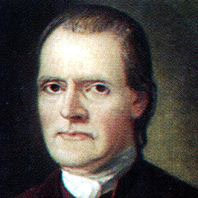 Roger Sherman |
 Benjamin Franklin |
 Alexander Hamilton |
James Madison, Roger Sherman, Benjamin Franklin, Alexander Hamilton, James Wilson, and George Mason were all key delegates. Many others have been forgotten.
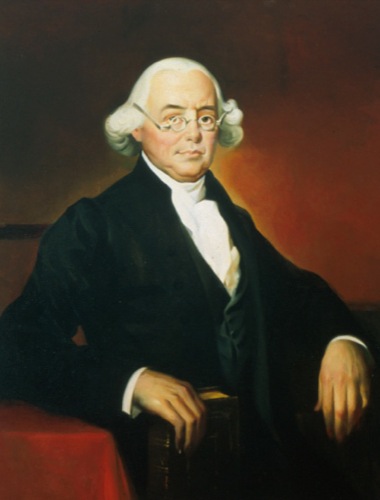 James Wilson |
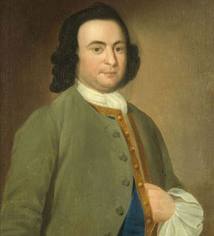 George Mason |
 George Washington |
Most of these men knew each other from years of politicking or war. Twenty-nine served in a military capacity during the Revolution and another twenty-three risked their fortunes and lives by taking an active political role during the war. Eight committed treason by signing the Declaration of Independence.
In colonial America, college degrees were rare, yet twenty-nine held college degrees and many others were self-educated in the classics and modern political thought. Almost all of the delegates were knowledgeable about Aristotle, Locke, Hume, and Montesquieu. Ten had degrees from the College of New Jersey (later to become Princeton), six from European universities, four from Harvard, four from Yale, four from William and Mary, two from the College of Philadelphia, and one from Kings College (later to become Columbia University).
Forty-five of the delegates were rich. Thirty-one had the good fortune of being born to wealthy or prominent families. Twelve were self-made and two married into money. Ten struggled to make ends meet and to support their families. Eight were born in other counties and many were second generation. Eleven were businessmen, eight owned large plantations, three were physicians, one was a professor, and six could be called professional politicians.
Thirty of the delegates were lawyers in an age that revered the rule of law and reason. All of them had extensive political experience and many went on to take substantial roles in the government they created. Two became president, twenty-five served in Congress, five gained appointments to the Supreme Court, four became foreign ministers, and four held cabinet positions.
Not every delegate went on to further success. Six wealthy delegates died impoverished, fleeing creditors. One was indicted, but not tried, for treason. One barely escaped impeachment from the Supreme Court and another was expelled from the Senate. Two died in duels, another mysteriously disappeared in the middle of New York City, and another was rumored murdered by a grandnephew impatient for his inheritance.
The story of the Constitution’s creation is incredible. It truly was a miracle. Fifty-five men locked themselves up in a stuffy room for four months to argue about the design of government. They continually referenced the works of the brightest minds in history, and through exhaustive deliberation crafted a government form they knew would protect individual liberty for themselves and posterity. Our Founding Fathers bequeath to us the best government reason could devise. It’s up to us to remain faithful to their vision.
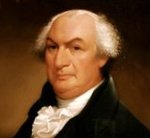
 The posts are coming!
The posts are coming!

5 comments
I enjoyed this article. I especially liked the pictures. I would have liked the names of the men you listed as wealthy, etc., but understand your space limits. I am about halfway though, Miracle at Philadelphia, and agree it is a good book to read. However, I wished it had pictures of all 55 delegates. The librarian at the Spokane Library could not help me locate a book that showed pictures of these men. I am glad you joined Marsha and Martin’s Web site.
[Reply]
You might try this website for portraits of the delegates to the convention.
http://www.constitution.org/cs_image.htm
[Reply]
Hi Quinn, you might also want to check out James’ book on the Constitutional Convention. It’s a lot of fun and very informative.
[Reply]
I looked up James’ book on Amazon and bought it. I am looking forward to reading it.
[Reply]
I appreciate the Web address for the pictures of the founders. I am still learning that Google is a resource. Thanks. Q
[Reply]
Leave a Comment